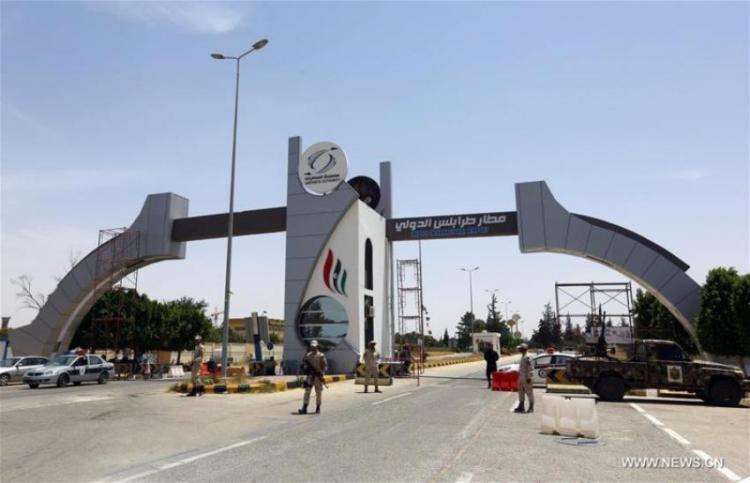privte -NPA
Libya’s new round of fighting, over the capital Tripoli, comes after years of political and military stalemate between two major groups. In the east, where the forces of “the Libyan National Army” led by Marshal Khalifa Haftar, and in the west, including the capital of Tripoli, various forces, wrap around the internationally recognized “Government of National Accord”, led by Fayez Alsarraj.
However, the circle of internal conflict is linked to complex external interferences, on two tracks, regional and international.
In last February, Libyan customs announced the seizure of a third shipment of weapons from abroad, in two months. The ongoing smuggling of arms revealed the path of the next escalation, which was not too late, until Marshal Khalifa Haftar announced, last week, the operation of (Alfateh Almubin), that aims at controlling Tripoli.
The complications of the conflict around Libya is a miniaturized copy of international and regional positions in a number of troubled countries, such as Syria and Yemen.
The past two days positions, outwardly, refer to a change in the position of the Marshal Kalifa Haftar’s supporting pillar, and the most prominent supporters are France, the UAE and Egypt.
On Saturday, France Foreign Minister (Jean-Yves Le Drian) called Hafter, at the end of the group of seven foreign ministers’ meeting of major western powers and Japan, for a halt of his advance towards Tripoli and agree to follow the UN plan.
The United Nations seek to hold a conference in Ghadames city , southeast of Libya, from the 14th of April till the 16th of the same month, to discuss the elections as a way out of the chaos of factions infighting , that has led to the emergence of Islamist militants in some areas.
“The UN has worked for one year for this national conference and will not give up this political action easily,” UN special envoy to Libya Ghassan Salameh said yesterday.
Observers believe that Haftar wants to control Tripoli before Ghadames conference, to impose negotiation conditions on his opponents in west of Libya.
The UAE joined a call with France, Italy, Britain and the United States, by warning that any unilateral action would only risk dragging Libya into chaos.
The UAE, along with Egypt, is one of the most prominent allies of Haftar, who has been received in Abu Dhabi several times.
“The way out of the crisis is to work hand in hand to fight and expel Al-Qaeda , Da’esh terrorists and other of nameless black extremism”, Ali’tihad newspaper, the mouthpiece of Abu Dhabi, said in an editorial yesterday. The UAE media often classifies the Muslim Brotherhood alongside the organization of the Islamic state and Al-Qaeda, and does not hide its strategy of fighting these groups, wherever it is found. Moreover, it calls the forces loyal to the Accord Government, especially, the “dawn of Libya, extremist militias.
The Egyptian position declared, is not far from the above. Foreign Minister Sameh Shukri stressed that a political solution is the only way to resolve it.
These three positions do not seem to contradict the positions of the other loyal parties to Tripoli government. However, Haftar’s insistence on continuing his attack on the capital, despite these calls, and his rejection of the mediation of the UN Secretary-General, Antonio Guterres, makes it likely that his supporters did not break their ties with him and his military action, aiming at turning the political and military scene, and changing the balance of power. Especially that Italy is on the other side, which is engaged in a public dispute against France over Libya, specifically, the competition between the Italian oil company “Eini” and the French one”Total”.
Qatar, also, supports the government of Tripoli, and the Qatari media launches a continuous and severe attack on Haftar. Two years ago, the relations between Qatar and the UAE collapsed, because of what the UAE calls “Qatari’s support for terrorism”, resulting in boycotting Qatari Government by Saudi Arabia, Egypt and Bahrain along with the UAE.
It is not clear, according to the data and positions declared, whether there will be an international action to stop Haftar and prevent him from completing the battle inside Tripoli, but the international and regional circles of conflict, has not resolved the battle of settling accounts, and Libya is a fragile area to achieve this. If the conflict is completed and the capital is taken over by Haftar, it will be a landslide victory for his supporters, who will find it a blow to their opponents. This is precisely why international powers, such as Germany and Russia, are concerned about to prevent , in order to preserve the fragile balance, even if it demands Putting the United Nations plan aside.

